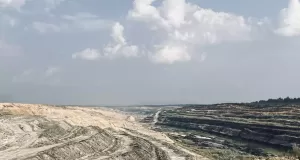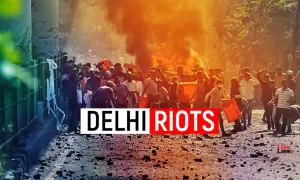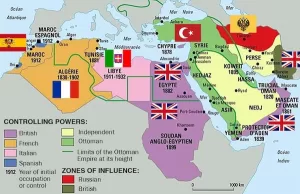Tens of thousands took to the streets in Argentina this week to express their rage toward the far-right administration of Javier Milei, after he announced a slew of new austerity measures on Wednesday. The protests started during the day, with mobilizations called for by left, workers’, and social organizations, despite the threat of heavy repression. Later in the evening, after the new measures were announced by Milei, people spontaneously went to the streets in Buenos Aires with pots and pans to denounce Milei’s anti-worker program and call for a national strike.
December 20, the day of the first important protests confronting Milei, is a symbolic date as it commemorates the police murder of 5 people who had been protesting during the mass uprising generated by the economic crisis of 2001 in Argentina. Now, 22 years later, Argentinians are experiencing the sharpest devaluation since the last great economic crisis and also questioning the authoritarian logic of a new regime that includes anti-democratic policies that affect the right to protest.
Milei came into office on December 10, as an anti-establishment candidate with the promise of fighting Argentina’s political caste, which has been responsible for the endless cycle of economic instability. He’s already shown himself to be a loyal agent of capital, especially imperialist capital and the international financial institutions like the IMF that prey like hawks on countries like Argentina.
In order to carry out his program, Milei was betting on a campaign of stoking fear among the working masses by threatening those who take to the streets. In this endeavor he relied heavily on the help of the new Minister of Security, Patricia Bullrich, who ran a campaign based on law and order in the previous presidential elections. Milei’s new administration went as far as to threaten to revoke welfare benefits for anyone who participated in protests. Despite the deployment of national guards and heavy tension on the streets, contingents of the left organizations, including those from the piqueteros movement, which played an important role in 2001, combatively marched in the streets and pushed past police to defend their democratic right to protest. At least two people were detained but eventually released.
“Today the attempt to impose a police state suffered its first defeat,” said the newly elected socialist deputy for the Workers Left Front, Christian “Chipi” Castillo.
Later that night, Milei announced the “National Emergency Decree,” which includes a severe economic austerity plan, in the context of an economy which is already experiencing over 130 percent inflation and a huge increase in the poverty rate to almost 50 percent. Now Milei is attacking workers even more by implementing an economic shock policy from above, without the approval of Congress, which will include layoffs, privatizations, and a massive devaluation of the Argentine peso. That’s partially due to the fact that his coalition, “La Libertad Avanza” holds only 15 percent of seats in the lower house and less than 10 percent of the Senate, making it nearly impossible for this kind of unpopular measure to pass within the Congress.
Almost immediately, people started banging pots and pans from their balconies and in the streets in response, and marched toward the National Congress building in Buenos Aires to protest the National Emergency Decree and call for a national strike. Now the leaderships of Argentina’s largest trade unions like the CGT, who until now have not organized a response to Milei’s program and under pressure from the movement on the streets, are debating whether to call for action and potential strikes. Socialist deputies like Myriam Bregman, with the Workers Left Front, made the call on these leaders to break with their passivity and fight for the broadest possible mobilizations and a national strike in the face of Milei’s historic attacks.
As Milei continues his offensive neoliberal and pro-imperialist program, the prospect for greater confrontations in Argentina is growing against the far-right Milei and complicit sectors. In many ways, yesterday’s protests were just previews of the battles ahead as Argentina’s working class and oppressed face the onslaught of a full-frontal adjustment plan.
In Argentina, there is the potential for those groups under attack to revive the tradition of struggle in the country, starting from the 2001 uprising, to the inspiring women’s movement which won abortion rights on the streets, and to the recent uprising in Jujuy where workers and oppressed sectors came together to fight with one fist in an anti-imperialist struggle against the control of natural resources in a region rich with lithium.
Only through such forms of self-organization and anti-imperialist and anti-capitalist class struggle can the working people of Argentina make sure that the current economic crisis is paid for not by the workers but by the capitalists who generate these crises.
(Maryam Alaniz is a socialist journalist, activist, and PhD student living in NYC. She is an editor for the international section of Left Voice. Courtesy: Left Voice, a US socialist news site and magazine dedicated to fostering a sustained and strategic struggle against every form of capitalist exploitation and oppression.)




